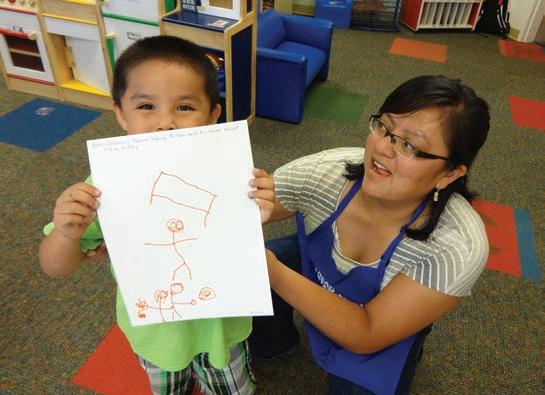
2 minute read
Testimonies
Susan C. Faircloth, Ph.D. (Coharie) Professor of Education, University of North Carolina Wilmington
“The American Indian College Fund’s Early Childhood Education initiative is a testament to the power of an “ethic of possibility” rooted and grounded in Indigenous Knowledges and Ways of Knowing. Although funded by the W.K. Kellogg Foundation, this initiative was envisioned by members of the tribal college community who recognized the sacredness of our little ones and worked to ensure that they those who educate and care for them are trained and supported in ways that honor and respect the cultural, social, and emotional strengths of these children, their families, and communities. This is a monumental undertaking that serves to strengthen the preparation of early childhood educators and caregivers, using a culturally relevant, responsive, and asset-based approach.”
Joelfré Grant, (Descendant of the Confederated Salish & Kootenai Tribes) Assistant Director of Professional Development & Project Director, Tribal Initiative, Brazelton Touchpoints Center
“Looking at the College Fund’s TCU ECE Initiatives retrospectively, it is clear that significant contributions to Native ECE have been made; the systems of care around native children in these TCU communities have changed dramatically, but more importantly, intentionally through locally culturally-based ways of learning, over the past six years. The story of these Initiatives is woven from the tales of Native children, families, and communities building on their strengths to develop sustainable systems that will lead to lifelong outcomes for all.”
Jacklyn Haight Director of the Early Childhood Education Program, Port Gamble S’Klallam Tribe
“Our youngest children in Native communities are active learners. The work of the College Fund’s TCU ECE Initiative returns the cycle of learning to its natural state of being-centered on a child’s sense of belonging. Simple connections are the most powerful change factors for children if the community pulls together- seven TCU ECE Initiatives demonstrated this strength through their efforts and success during the last six years.”
Keiki K. C. Kawai’ae’a, Ph.D Director, Ka Haka ‘Ula O Ke‘elikōlani College, University of Hawai’i at Hilo
“The TCU ECU initiatives clearly advance Native ECE through an indigenous framework that honors, is responsive to, and serves its participating communities and educational partners in cultivating vibrant Native communities through the development of fully integrated “systems of care and learning” beginning with the children in mind. The initiatives drive a sustainable legacy model that has created intellectual and cultural centers through situating Native philosophy and praxis at the core of its transformational culture-based education.”

